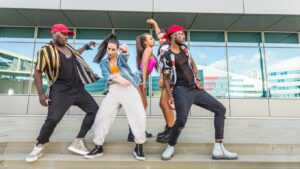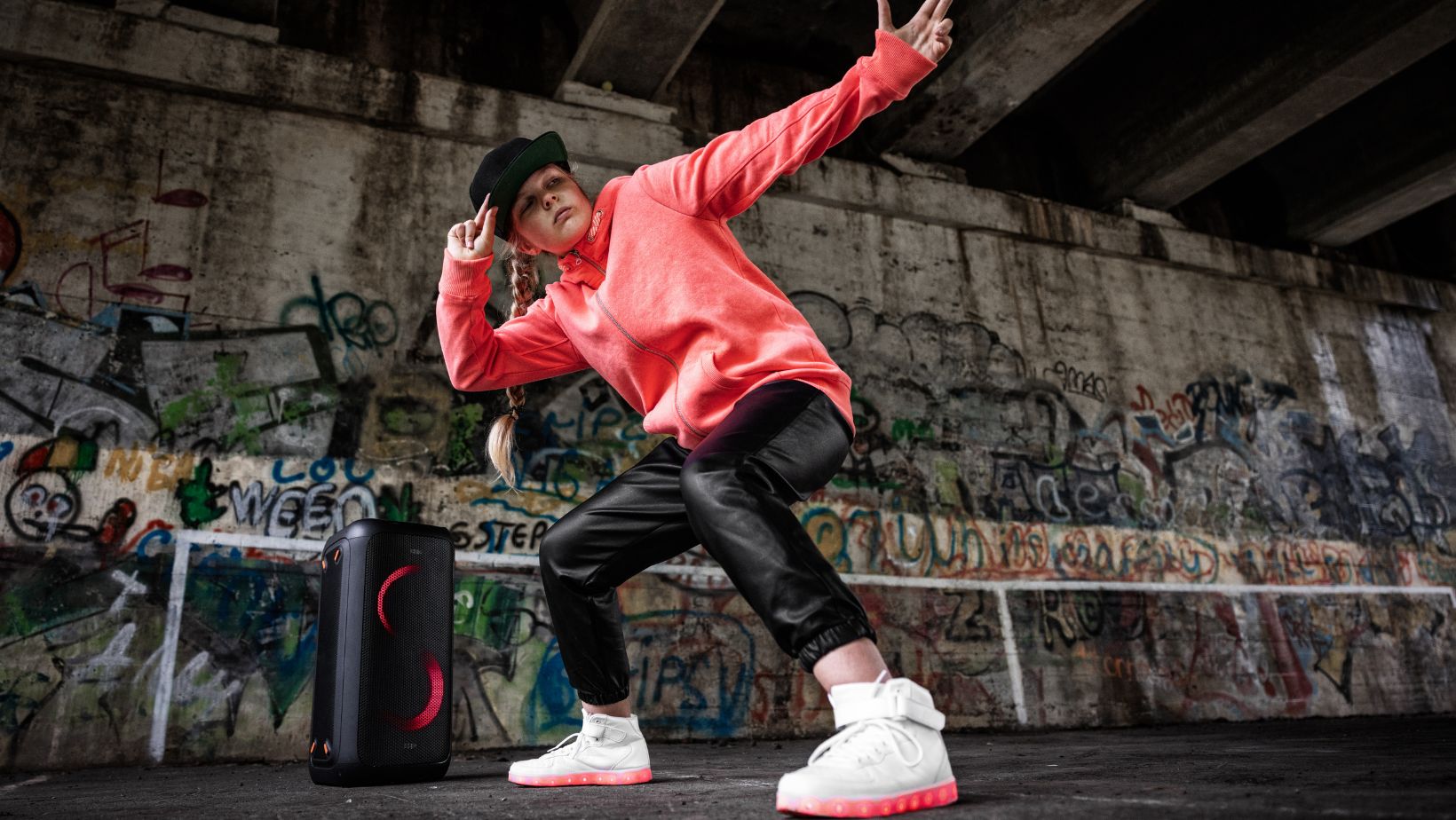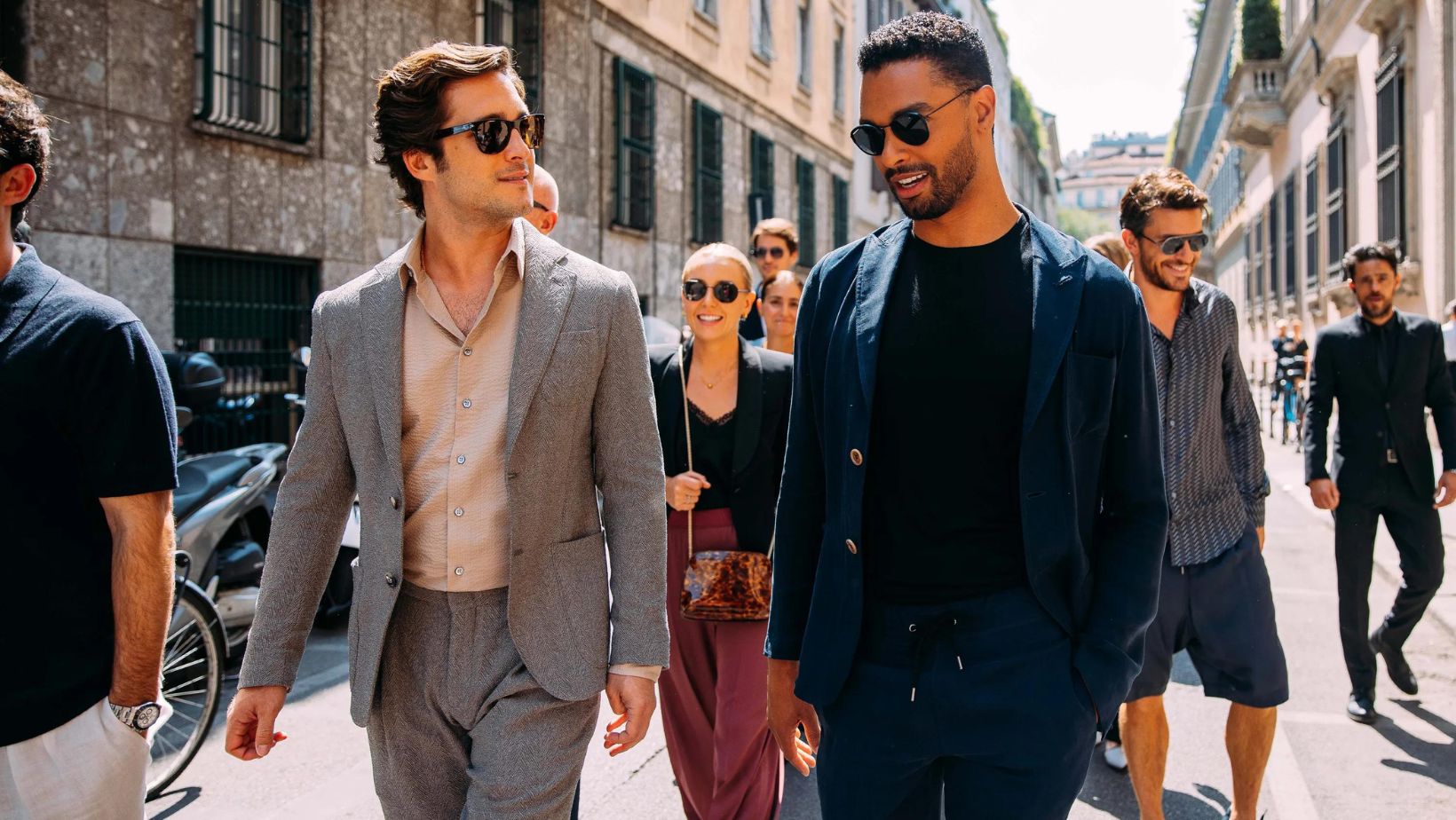Embracing a mix of high-end luxury and urban thrift store finds, street style hip hop fashion of the 2000s blurred the lines between couture and casual, setting the stage for a new wave of sartorial rebellion. Influenced by music icons, athletes, and underground subcultures, this fashion movement was a visual symphony of colors, patterns, and attitude.
Street Style Hip Hop 2000s Fashion
 The roots of street style hip hop fashion in the 2000s delve deep into the avant-garde spirit of the era. Influenced by music icons, athletes, and underground subcultures, this fashion movement was a fusion of high-end luxury and urban thrift store treasures.
The roots of street style hip hop fashion in the 2000s delve deep into the avant-garde spirit of the era. Influenced by music icons, athletes, and underground subcultures, this fashion movement was a fusion of high-end luxury and urban thrift store treasures.
1. Icons Inspiring Attitude:
Iconic figures in the music and sports realms played pivotal roles in shaping the bold aesthetics of 2000s street style hip hop fashion. Artists like Jay-Z, Missy Elliott, and Pharrell Williams effortlessly blended luxury brands with streetwear, transforming oversized silhouettes and flashy accessories into symbols of confidence and attitude.
2. Sporting Culture Influence:
Athletic influences were ubiquitous in 2000s street style hip hop fashion, with basketball jerseys, snapback caps, and baggy tracksuits becoming iconic staples. The blend of athletic wear with urban sensibilities highlighted the intersection of sports culture and street fashion, creating a dynamic visual language that resonated with the youth.
3. Urban Thrift Store Chic:
One of the defining features of the 2000s street style hip hop fashion was the embrace of urban thrift store finds. Vintage pieces, DIY embellishments, and unique accessories from thrift stores became prized possessions, adding an element of individuality and authenticity to the fashion landscape.
Key Elements of 2000s Hip Hop Fashion
Baggy Jeans and Oversized Tees
 Baggy jeans and oversized tees were signature elements of 2000s hip hop fashion, epitomizing the relaxed and rebellious style of the era. Influenced by street culture and urban aesthetics, baggy jeans exuded a sense of nonchalant coolness, allowing for freedom of movement and self-expression. Paired with oversized tees featuring bold graphics, artists like Jay-Z and Missy Elliott set trends that embraced comfort without sacrificing boldness.
Baggy jeans and oversized tees were signature elements of 2000s hip hop fashion, epitomizing the relaxed and rebellious style of the era. Influenced by street culture and urban aesthetics, baggy jeans exuded a sense of nonchalant coolness, allowing for freedom of movement and self-expression. Paired with oversized tees featuring bold graphics, artists like Jay-Z and Missy Elliott set trends that embraced comfort without sacrificing boldness.
Athletic Wear and Sneaker Culture
Athletic wear and sneaker culture played a pivotal role in defining 2000s hip hop fashion, blending sporty elements with urban flair. Artists like Pharrell Williams seamlessly integrated athletic influences into their style, showcasing a mix of functionality and street cred. From classic basketball jerseys to baggy tracksuits, the incorporation of athletic wear symbolized a connection to hip hop’s roots in urban athleticism and movement.
Accessories and Bling
Accessories and bling were indispensable components of 2000s hip hop fashion, elevating outfits with a touch of opulence and self-expression. The era embraced lavish accessories, from oversized statement chains to chunky watches, reflecting a desire for extravagance and luxury. Artists used jewelry to signify status and success, with iconic figures like Jay-Z and Pharrell Williams setting trends with their ostentatious yet tasteful accessorizing.
Influential Icons in 2000s Hip Hop Fashion
Musicians and Their Style Impact
 Jay-Z: Jay-Z, a trailblazer in both music and fashion, influenced the 2000s hip hop fashion scene with his sharp sartorial choices. Mixing luxury with urban elements, he popularized the fusion of high-end brands like Gucci and Tom Ford with streetwear, setting a new standard for sophistication and street credibility in the industry.
Jay-Z: Jay-Z, a trailblazer in both music and fashion, influenced the 2000s hip hop fashion scene with his sharp sartorial choices. Mixing luxury with urban elements, he popularized the fusion of high-end brands like Gucci and Tom Ford with streetwear, setting a new standard for sophistication and street credibility in the industry.
1. Missy Elliott: Missy Elliott, known for her innovative music and boundary-pushing style, brought a unique flair to 2000s hip hop fashion. Her bold and colorful outfits, often adorned with oversized accessories and statement pieces, challenged conventional norms and inspired a generation to embrace individuality and creativity in their clothing choices.
2. Pharrell Williams: Pharrell Williams, a fashion icon in his own right, showcased an eclectic mix of high fashion and urban streetwear in the 2000s. His trademark hats, layered ensembles, and daring footwear choices blurred the lines between avant-garde and casual, signaling a shift towards a more adventurous and experimental approach to dressing in the hip hop community.
These influential musicians and fashion designers left an indelible mark on 2000s hip hop fashion, pushing boundaries, challenging norms, and inspiring a generation of trendsetters to embrace diversity, creativity, and self-expression through their sartorial choices.



